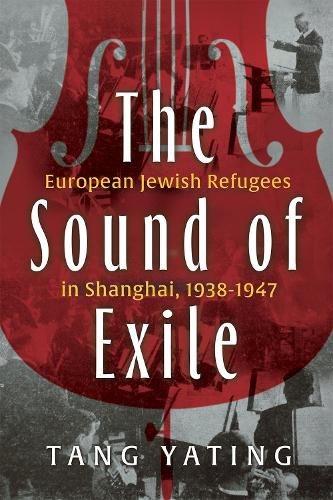Readings Newsletter
Become a Readings Member to make your shopping experience even easier.
Sign in or sign up for free!
You’re not far away from qualifying for FREE standard shipping within Australia
You’ve qualified for FREE standard shipping within Australia
The cart is loading…






Combining diaspora studies and ethnomusicology, The Sound of Exile: European Jewish Refugees in Shanghai, 1938-1947 by Tang Yating examines how Central European Jewish refugees employed music as a means of reconstructing cultural identity amid turmoil and displacement in Shanghai. From orchestral arrangements and cabarets to traditional synagogue liturgy, music served as the common thread weaving together the history of Jewish life, thought, and exile. Navigating a Shanghai that was embroiled in its own complicated history and the intricate politics marking its settlements and concessions, the Jewish refugee community made music that embraced survival, salvation, and after the war, gratitude for the city most would leave behind.
The Sound of Exile highlights this diasporic musical life by exploring neglected archival documents. Analyzing these sources alongside ephemeral material such as memoir fragments, news reports, flyers, advertisements, tickets for performances, and more, the text revives the little-known communities Jewish refugees created to support themselves artistically and spiritually. The result is a book that brings Shanghai Jewish musical history to life.
$9.00 standard shipping within Australia
FREE standard shipping within Australia for orders over $100.00
Express & International shipping calculated at checkout
Combining diaspora studies and ethnomusicology, The Sound of Exile: European Jewish Refugees in Shanghai, 1938-1947 by Tang Yating examines how Central European Jewish refugees employed music as a means of reconstructing cultural identity amid turmoil and displacement in Shanghai. From orchestral arrangements and cabarets to traditional synagogue liturgy, music served as the common thread weaving together the history of Jewish life, thought, and exile. Navigating a Shanghai that was embroiled in its own complicated history and the intricate politics marking its settlements and concessions, the Jewish refugee community made music that embraced survival, salvation, and after the war, gratitude for the city most would leave behind.
The Sound of Exile highlights this diasporic musical life by exploring neglected archival documents. Analyzing these sources alongside ephemeral material such as memoir fragments, news reports, flyers, advertisements, tickets for performances, and more, the text revives the little-known communities Jewish refugees created to support themselves artistically and spiritually. The result is a book that brings Shanghai Jewish musical history to life.